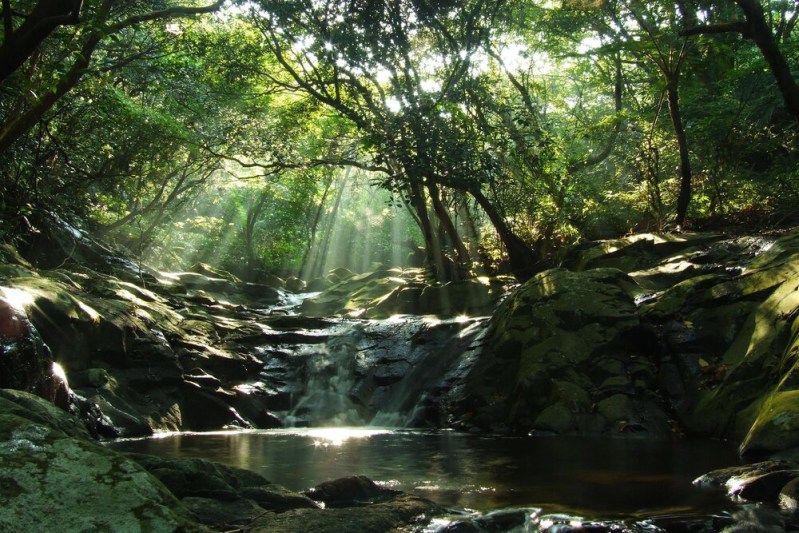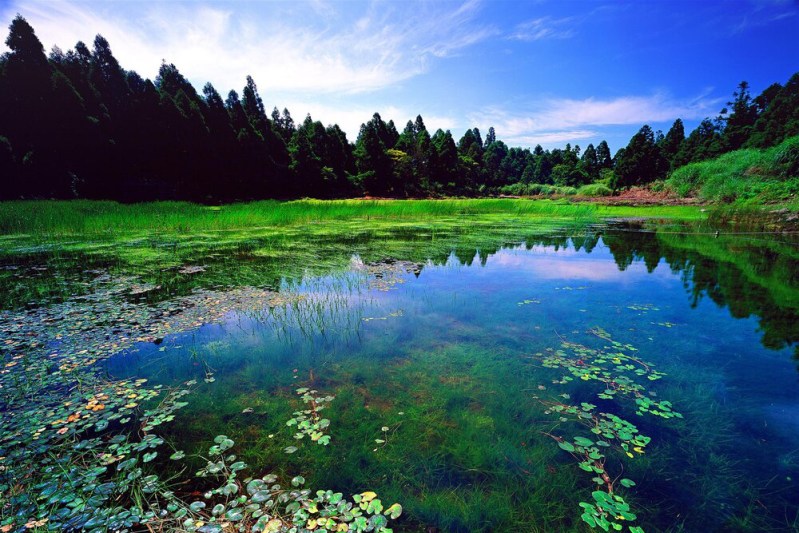
Most of us are looking for an escape right now — a bar, a Denny’s, honestly anywhere outside the four beige walls of our WFH office will do. For urbanites, however, even city parks don’t always offer the “blissful escape into nature” most of us seek. Constant road noise, construction, and throngs of other people all make a lot of noise. Now, one non-profit organization is looking to change that by establishing certified “urban quiet parks” in cities around the world.
This month, as part of World Environment Day, Quiet Parks International (QPI) recognized Taiwan’s Yangmingshan National Park as the first official Urban Quiet Park. Located outside downtown Taipei, the park has offered respite for more than four million visitors per year since 2011. It covers nearly 4,400 square miles of diverse green space, including lush green hills, densely forested mountains, and even natural hot springs. It’s an ideal escape for birdwatchers, hikers, and nature lovers. It’s also home to numerous culturally relevant heritage sites, including Grass Mountain Chateau, once the mountain retreat of a Japanese prince.
While the park’s location is convenient to the city, it’s surprisingly quiet. Noise levels on any given day rarely rise above 45 decibels — about as loud as a hushed conversation. On the park’s most tranquil days, it’s possible to hear ducks paddling across its many ponds. Laila Chin-Hui Fan, a journalist who petitioned for the park to be recognized, said it’s “wonderland that can help cleanse our body, clear our mind, and claim our spirit.”

It’s this intense quiet and serenity that Quiet Parks International is after. In the non-profit’s own words, it defines urban quiet parks as “natural areas near or in cities that offer culturally relevant quiet experiences to urban dwellers.” As populations boom around the world, it’s increasingly difficult for city residents to find peace and quiet. In the world’s most densely packed urban environments like Tokyo and Manhattan, for example, it can be almost impossible. The problem is, we need those spaces now more than ever. QPI’s Executive Director, Ulf Bohman, recognizes the importance of being able to find a place to decompress. “Cities around the world should identify, protect, and make accessible places in nature that are dedicated to silence in the outer sense and stillness in the inner sense.”
In addition to Yangmingshan National Park, Quiet Parks International is looking to certify dozens of more parks within the next few decades. The Taiwanese park could become a model for parks in London, Stockholm, New York City, and Portland, Oregon, which all have urban quiet park designations in the works.
Looking for inner peace right now? With or without a quiet space nearby, check out our complete guide to meditation.



